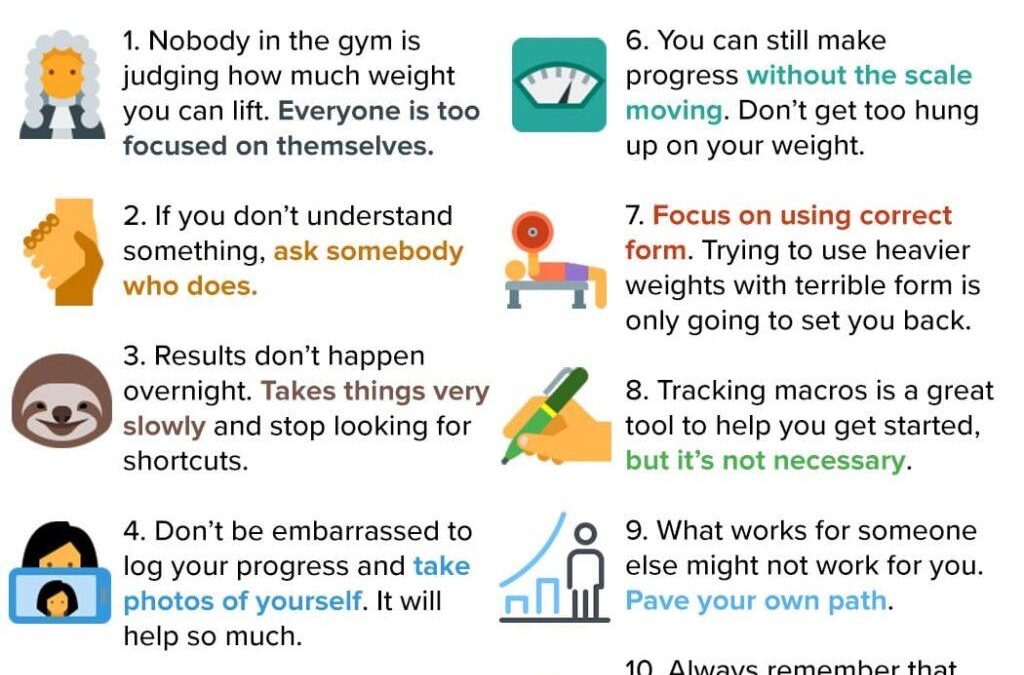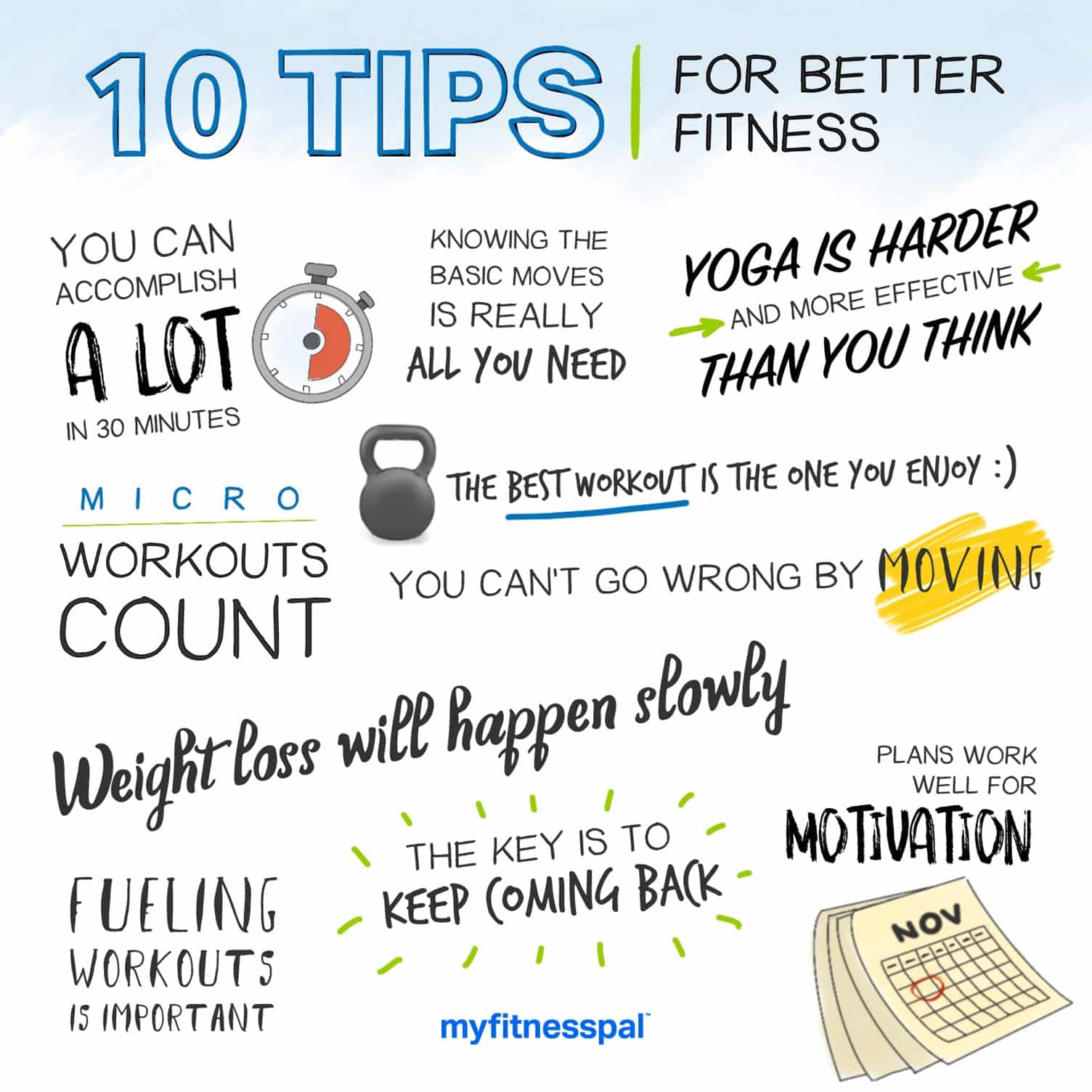
Top 10 Daily Habits For Fitness Success: Unlock Your Inner Athlete
Top 10 Daily Habits for Fitness Success: Unlock Your Inner Athlete
Related Articles
- Top Tips For Staying Active During Holidays: A Guide To Maintaining Your Health And Well-being
- Creating A Flexible Routine: The Key To A Balanced Life
- Fitness Journey For Women: Essential Tips To Unlock Your Potential
- What To Expect In A 90-Day Fitness Journey: A Comprehensive Guide
- Top Workouts For Busy Parents: Unlocking Time And Energy
Introduction
Welcome to our comprehensive guide on Top 10 Daily Habits for Fitness Success: Unlock Your Inner Athlete
Top 10 Daily Habits for Fitness Success: Unlock Your Inner Athlete

The pursuit of fitness is a journey, not a destination. It’s about cultivating healthy habits that become an integral part of your life, leading to sustainable results. While the allure of quick fixes and magical solutions is tempting, true fitness success lies in the consistent practice of simple, effective habits.
This article delves into the top 10 daily habits that can transform your fitness journey, revealing the secrets and tricks that will propel you towards your goals. We’ll explore each habit in detail, providing actionable strategies and insightful tips to maximize your progress.
1. Prioritize Sleep: The Foundation of Fitness
The Secret: Sleep isn’t just about feeling rested; it’s crucial for muscle recovery, hormone regulation, and cognitive function. When you’re sleep-deprived, your body produces more cortisol, a stress hormone that can hinder muscle growth and increase fat storage.
The Trick: Aim for 7-9 hours of quality sleep each night. Establish a consistent sleep schedule, create a relaxing bedtime routine, and optimize your sleep environment by keeping your bedroom cool, dark, and quiet.
Progression:
- Week 1: Track your sleep patterns for a week. Identify any sleep disruptions and start making small changes to your routine, such as avoiding caffeine and alcohol before bed.
- Week 2: Implement a consistent sleep schedule, going to bed and waking up around the same time each day, even on weekends.
- Week 3: Create a relaxing bedtime routine that signals to your body that it’s time to wind down. This could include a warm bath, reading, or meditation.
- Week 4: Optimize your sleep environment. Ensure your bedroom is dark, quiet, and cool. Consider investing in a comfortable mattress and blackout curtains.

Review
Benefits:
- Increased Muscle Growth: Sleep is crucial for muscle protein synthesis, the process that repairs and builds muscle tissue.
- Enhanced Performance: Adequate sleep improves reaction time, coordination, and overall athletic performance.
- Improved Mood and Cognitive Function: Sleep deprivation can lead to irritability, decreased concentration, and poor decision-making.
- Reduced Risk of Chronic Diseases: Studies have linked chronic sleep deprivation to an increased risk of obesity, diabetes, and heart disease.
Step-by-Step Guide
2. Hydrate Like a Champion: Fuel Your Body from Within
The Secret: Water is essential for every bodily function, from regulating temperature to transporting nutrients. Dehydration can lead to fatigue, muscle cramps, and decreased performance.
The Trick: Carry a reusable water bottle with you throughout the day and sip on it frequently. Aim for 8-10 glasses of water daily, adjusting based on your activity level and climate.
Progression:
- Week 1: Start by carrying a water bottle with you and aiming to drink at least half of it throughout the day.
- Week 2: Increase your water intake by adding another glass or two.
- Week 3: Pay attention to your thirst cues and drink water throughout the day, even if you don’t feel particularly thirsty.
- Week 4: Experiment with flavored water or adding lemon or cucumber slices to your water for variety.
Tips to Maximize Your Fitness Journey
Benefits:
- Improved Energy Levels: Dehydration can lead to fatigue, so staying hydrated can boost your energy levels.
- Enhanced Performance: Water is essential for maintaining electrolyte balance, which is crucial for optimal muscle function.
- Improved Digestion: Water aids in digestion and helps prevent constipation.
- Reduced Risk of Kidney Stones: Staying hydrated can help prevent the formation of kidney stones.
3. Fuel Your Body with Whole Foods: Nourish Your Performance
The Secret: The foods you consume directly impact your energy levels, recovery, and overall health. Prioritize whole, unprocessed foods over processed junk food.
The Trick: Focus on nutrient-dense foods like fruits, vegetables, lean protein, whole grains, and healthy fats. Plan your meals ahead of time and pack healthy snacks to avoid unhealthy choices.
Progression:
- Week 1: Start by replacing one unhealthy meal or snack per day with a healthier option.
- Week 2: Increase the number of healthy meals and snacks you consume each day.
- Week 3: Experiment with new recipes and healthy food combinations.
- Week 4: Focus on incorporating a variety of colorful fruits and vegetables into your diet.
Benefits:
- Increased Energy and Stamina: Whole foods provide sustained energy levels, unlike processed foods that cause energy crashes.
- Improved Recovery: Nutrient-rich foods support muscle repair and recovery after workouts.
- Reduced Risk of Chronic Diseases: A diet rich in whole foods can lower the risk of heart disease, stroke, type 2 diabetes, and some cancers.
- Improved Digestion and Gut Health: Whole foods promote a healthy gut microbiome, which is essential for overall health.
4. Embrace Strength Training: Build a Stronger You
The Secret: Strength training isn’t just for bodybuilders; it’s essential for everyone. Building muscle mass increases metabolism, boosts bone density, and improves overall functionality.
The Trick: Incorporate strength training into your routine at least twice a week. Focus on compound exercises that work multiple muscle groups simultaneously, such as squats, deadlifts, and push-ups.
Progression:
- Week 1: Start with bodyweight exercises and gradually increase the intensity and duration of your workouts.
- Week 2: Introduce light weights and focus on proper form and technique.
- Week 3: Gradually increase the weight or resistance as you get stronger.
- Week 4: Experiment with different types of strength training, such as weightlifting, bodyweight exercises, and resistance band training.
Benefits:
- Increased Muscle Mass: Strength training stimulates muscle protein synthesis, leading to increased muscle mass.
- Boosted Metabolism: Muscle tissue burns more calories at rest, leading to an increased metabolism.
- Improved Bone Density: Strength training puts stress on bones, which helps strengthen them and reduce the risk of osteoporosis.
- Enhanced Functional Fitness: Strength training improves balance, coordination, and overall functional fitness.
5. Move Your Body Regularly: Embrace the Power of Movement
The Secret: Regular physical activity is essential for both physical and mental health. It doesn’t have to be strenuous; even moderate activity can have significant benefits.
The Trick: Aim for at least 30 minutes of moderate-intensity exercise most days of the week. This could include brisk walking, jogging, swimming, cycling, or dancing.
Progression:
- Week 1: Start with 10-15 minutes of moderate-intensity exercise each day and gradually increase the duration.
- Week 2: Incorporate different types of activities into your routine to keep things interesting.
- Week 3: Challenge yourself by trying new activities or increasing the intensity of your workouts.
- Week 4: Find ways to incorporate more movement into your daily life, such as taking the stairs instead of the elevator or walking during your lunch break.
Benefits:
- Improved Cardiovascular Health: Regular exercise strengthens the heart and lungs, reducing the risk of heart disease and stroke.
- Weight Management: Exercise burns calories and helps you maintain a healthy weight.
- Reduced Risk of Chronic Diseases: Regular physical activity can lower the risk of type 2 diabetes, certain cancers, and other chronic conditions.
- Improved Mood and Cognitive Function: Exercise releases endorphins, which have mood-boosting effects and can improve cognitive function.
6. Embrace Mindfulness: Connect with Your Body and Mind
The Secret: Mindfulness is the practice of being present in the moment without judgment. It can help you connect with your body, reduce stress, and improve your overall well-being.
The Trick: Incorporate mindfulness practices into your daily routine, such as meditation, yoga, or deep breathing exercises. Even a few minutes of mindfulness each day can make a difference.
Progression:
- Week 1: Start with 5 minutes of mindfulness practice each day, focusing on your breath and body sensations.
- Week 2: Increase the duration of your mindfulness practice to 10 minutes.
- Week 3: Experiment with different mindfulness techniques, such as guided meditations, body scans, or walking meditations.
- Week 4: Integrate mindfulness into your daily life by paying attention to your senses and being present in your interactions with others.
Benefits:
- Reduced Stress and Anxiety: Mindfulness helps calm the nervous system and reduce stress hormone levels.
- Improved Emotional Regulation: Mindfulness allows you to observe your emotions without judgment and develop greater emotional resilience.
- Increased Self-Awareness: Mindfulness helps you become more aware of your thoughts, feelings, and bodily sensations.
- Enhanced Focus and Concentration: Mindfulness can improve your ability to focus and concentrate.
7. Prioritize Recovery: Give Your Body the Rest It Needs
The Secret: Recovery is just as important as exercise. It allows your body to repair and rebuild muscle tissue, replenish energy stores, and prevent injuries.
The Trick: Give your body adequate rest between workouts, prioritize sleep, and incorporate active recovery activities like stretching, foam rolling, or light walks.
Progression:
- Week 1: Focus on getting at least 7-8 hours of sleep each night and taking a day or two off from exercise each week.
- Week 2: Incorporate active recovery activities into your routine, such as stretching or foam rolling.
- Week 3: Pay attention to your body’s signals and take rest days when needed.
- Week 4: Experiment with different recovery techniques, such as massage, sauna, or cold therapy.
Benefits:
- Improved Muscle Recovery: Rest allows your muscles to repair and rebuild after exercise.
- Reduced Risk of Injury: Proper recovery helps prevent overuse injuries and muscle soreness.
- Enhanced Performance: Adequate recovery allows your body to adapt to exercise and improve performance.
- Improved Mood and Cognitive Function: Rest and recovery are essential for maintaining good mental health.
8. Set Realistic Goals: Focus on Progress, Not Perfection
The Secret: Setting unrealistic goals can lead to frustration and discouragement. Focus on small, achievable goals that you can build upon over time.
The Trick: Break down your larger fitness goals into smaller, manageable steps. Celebrate your progress along the way and adjust your goals as needed.
Progression:
- Week 1: Identify one small, achievable goal that you can focus on for the week.
- Week 2: Once you achieve your first goal, set another small goal to build upon your progress.
- Week 3: Continue setting small, achievable goals and celebrate your successes along the way.
- Week 4: Re-evaluate your goals and adjust them as needed based on your progress and changing needs.
Benefits:
- Increased Motivation: Achieving small goals can boost your motivation and keep you on track.
- Reduced Frustration: Setting realistic goals can prevent you from feeling overwhelmed and discouraged.
- Improved Consistency: Focusing on progress over perfection can help you stay consistent with your fitness routine.
- Greater Satisfaction: Celebrating your successes along the way can increase your sense of accomplishment and satisfaction.
9. Find Your Fitness Tribe: Embrace the Power of Support
The Secret: Having a supportive community can make a world of difference in your fitness journey. Surround yourself with people who encourage and motivate you.
The Trick: Join a fitness class, find a workout buddy, or connect with other fitness enthusiasts online. Share your goals, challenges, and successes with others who understand your journey.
Progression:
- Week 1: Identify one or two people who you can share your fitness goals with and who can provide support.
- Week 2: Start connecting with other fitness enthusiasts online or in your community.
- Week 3: Join a fitness class or group to meet new people and get motivated.
- Week 4: Seek out a workout buddy who can provide encouragement and accountability.
Benefits:
- Increased Motivation: Having a supportive community can help you stay motivated and on track.
- Reduced Feelings of Isolation: Connecting with others who share your fitness goals can reduce feelings of isolation and loneliness.
- Enhanced Accountability: Having a workout buddy or support group can hold you accountable for your goals.
- Improved Results: Studies have shown that people who have social support are more likely to achieve their fitness goals.
10. Be Kind to Yourself: Embrace the Journey, Not the Destination
The Secret: Fitness is a lifelong journey, not a race to the finish line. Be patient with yourself, celebrate your progress, and don’t be afraid to make mistakes.
The Trick: Focus on the process, not just the outcome. Embrace the challenges and celebrate the victories along the way.
Progression:
- Week 1: Start by setting small, achievable goals and focusing on the process of making positive changes.
- Week 2: Celebrate your progress, even if it’s small, and acknowledge your efforts.
- Week 3: Be patient with yourself and don’t get discouraged if you experience setbacks.
- Week 4: Remember that fitness is a journey, not a destination, and embrace the process of becoming a healthier, stronger version of yourself.
Benefits:
- Reduced Stress and Anxiety: Being kind to yourself can reduce stress and anxiety associated with fitness goals.
- Improved Self-Esteem: Celebrating your progress and acknowledging your efforts can boost your self-esteem.
- Increased Motivation: Focusing on the process and enjoying the journey can increase your motivation to stick with your fitness goals.
- Greater Sustainability: Embracing the journey and being kind to yourself can help you create sustainable fitness habits that last a lifetime.
Conclusion
Achieving fitness success is not about overnight transformations or magical solutions. It’s about cultivating a healthy lifestyle through consistent, sustainable habits. The top 10 daily habits outlined in this article provide a roadmap to unlock your inner athlete and achieve your fitness goals. Remember, consistency, patience, and self-compassion are key. By embracing these habits and making them an integral part of your life, you can embark on a fulfilling journey towards a healthier, stronger, and more vibrant you.
Frequently Asked Questions
Q: How long does it take to see results from incorporating these habits?
A: The time it takes to see results varies depending on individual factors such as genetics, starting point, and consistency. However, you should start to notice positive changes within a few weeks of consistently practicing these habits.
Q: What if I miss a day or two of these habits?
A: Don’t beat yourself up if you miss a day or two. It’s more important to stay consistent over the long term than to be perfect every day. Get back on track as soon as possible and don’t let one slip-up derail your progress.
Q: How can I stay motivated when I’m feeling uninspired?
A: Remind yourself of your "why" – why you started this journey in the first place. Connect with your fitness tribe for support, try new activities, and celebrate your progress, no matter how small.
Q: What if I don’t have time for all these habits?
A: Start with one or two habits that you can realistically incorporate into your daily routine. As you get more comfortable, you can gradually add more habits.
Q: Is it okay to have cheat days or meals?
A: It’s perfectly fine to have occasional cheat days or meals. The key is to keep them in moderation and not let them derail your progress.
Q: What if I have a medical condition that limits my ability to exercise?
A: Consult with your doctor or a qualified healthcare professional to create a safe and effective fitness plan that meets your individual needs.
Remember, fitness is a journey, not a destination. Embrace the process, be kind to yourself, and enjoy the journey of becoming a healthier, stronger version of you.
Source:
https://www.mayoclinic.org/healthy-lifestyle/fitness/in-depth/exercise/art-20048389
Closure
Thank you for joining us; keep visiting for updates on Top 10 Daily Habits for Fitness Success: Unlock Your Inner Athlete and related topics.
Stay tuned for more expert tips to elevate your fitness journey!
Keep up with our latest fitness and wellness content!



